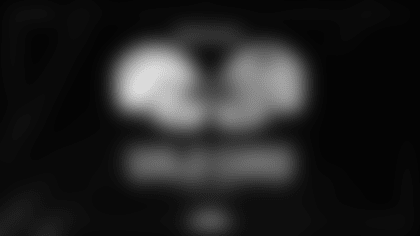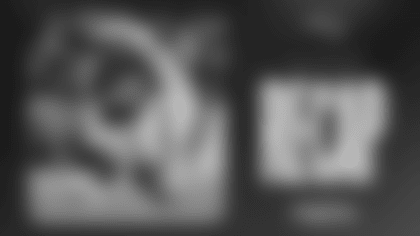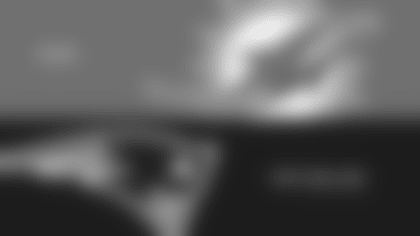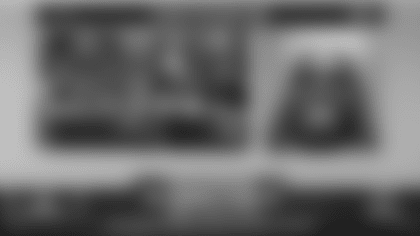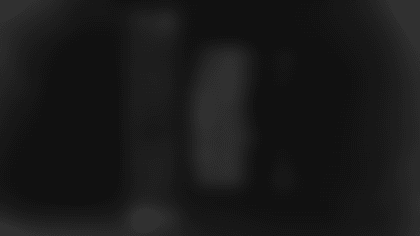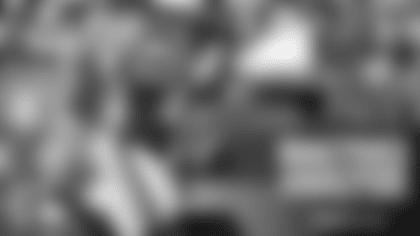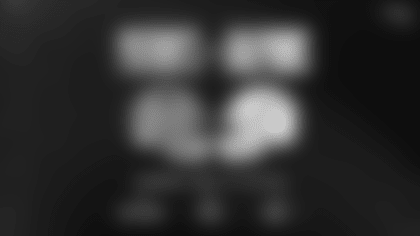[

]()
BB: What do you have this morning? I don't really have any major announcements, or any major trades.
Q: Off the Patriots subject, George Allen is being inducted into the Football Hall of Fame, what are your thoughts about him?
BB: Well my first year in the league was with Ted Marchibroda, and Marchibroda was the offensive coordinator on George Allen's staff in 1974, and so George had about 18 or 19 assistant coaches, I mean there were a thousand of them, and when I worked for Ted, pretty much as a volunteer coach, there were only seven other coaches on the staff, three on offense, three on defense, and one for special teams, there was no strength coach. So I was the eighth guy and got quite a bit of responsibility, not that I knew anything, but you know, I was just the next guy, and George had his staff. So, we went to training camp July 5th and the defensive coordinator was Maxie Baughan, who played for George Allen with the Redskins, and Ted coached for him so everything in the Baltimore Colts playbook was exactly the same as the Redskins except it was whited out. You could see where the Washington Redskins was, and then Baltimore Colts was there. 300 pages of Baltimore Colts playbook, page number 84, was number 84 in the Washington playbook too. All the terms were the same, I mean it was exactly the same, the only thing that was different was the decal on the helmet on the page, and then we scrimmaged the Redskins three times that year, prior to the six-preseason games.
Q: How many times?
BB: three times we scrimmaged them, three scrimmages and six preseason games, and so when we would go to scrimmage them, it was truly an inter-squad scrimmage because which ever team had the ball, and the plays they were calling, and the defenses, and you know how you stand out there in practice you can hear what everybody's saying, it's all the same words, it's all the same calls, it's all the same everything, the same plays the same formation. One team is wearing red; the other team is wearing white. So I really got a good understanding I think, I mean Ted [Marchibroda] and George [Allen] are different I'm sure, quite a bit different, but the system, the George Allen system, was really what I was introduced to in 1975 with the Colts, the only thing that was different was the decal on the helmet. And then the way that the Colts did everything that year was all related to, well 'this is the way [Bill] Kilmer did it, this is the way Roy Jefferson did it, and this is the way Larry Brown did it, and that's the way Chris Hanburger did it, and that's the way Kenny Houston did it, and that's the way you know Torgy [Torgeson] did it,' and all that we really felt like we were cousins to the Redskins, we never played them in the regular season, but in the scrimmages and all, and then from there we kind of went off on our own.
Q: Had you met Allen, and did he impress you?
BB: Yea, I mean I didn't really have much of a relationship with him at that point in my career. You know, I mean I didn't, no, I'd met him, but I hadn't really spent any time with him, but you know the stories and how he did things, I feel like I worked for him for ten years.
Q: Would you be able to share one of those stories with us?
BB: You know, one of the best stories I remember about George Allen was that he was a real fitness fanatic and you know nutrition and all that, so those were back in the days when there weren't too many water coolers, and his big thing was this certain kind of water that he liked, I forget what it was now, some kind of quarry water or something, you know, like we all have now. So he would always be on the equipment guy, Mcbane, about you know, 'fill up the water jug Mcbane, how come this thing's empty where's the change of water' and all that. And I guess back in those days the deliveries were late, and it wasn't that big of a thing, so you know, the thing was empty, Mcbane would go into the shower, run the shower, fill the thing up, put it over there, and then George would go to the water cooler, and you know, get a cup of water, 'ahh, man this water is the best, I feel so good', while twenty guys are standing there saying, 'oh c'mon George, this stuff is great', and he never knew. So I don't know if they even got any water. It's like the restaurant I used to work at when I was in High School, you had the Heinz ketchup bottles and you'd put them on all the tables for lunch, and everything, and after lunch was over you'd break them down, you'd take the restaurant ketchup and funnel it in there, put the cap back on. The customers come back in the next day and, 'that's a class place, they got the best ketchup, that's great.'
Q: What about the heat the last couple days?
BB: Yea, somebody turned it on. It's been . . . there's no other way to condition for it other than to play in it, you talk about it and all that, but you know you got to get out there and sweat, your body's got to get acclimated to the heat and the humidity, we got some humidity, so, you know, it drains a little bit more out of the players and the coaches, but it's something you have to acclimate yourself to because those are the conditions were going to have to play in, and have to be prepared to play in. I mean it hasn't been impressive but it's increased the hydration factor, and the temperature and the body temperature out there no question.
Q: Do you do anything different?
BB: No
Q: Bill, you seem to be managing player's practice time, does this have anything to do with the short off-season?
BB: No, I don't think it's about the off-season, I think it's more about what that player's physical condition is. Guys that have, you know we got a couple older guys, guys that have played, that are basically ok, but they got a knee, that, too much on it kind of aggravates it, it swells up and then gets inflamed, and that kind of thing. You know, if you can prevent that situation from happening, it's a lot easier than it is once it occurs, to try to, you know, have enough time for it to try to back down, and so, a couple guys like that, you know there's no question about their toughness, I mean they'll go. It's not like they're not tough enough to fight through it, it's just that sometimes being a little more proactive to try to keep those injuries from starting to nag them early, then getting a little longer life span out of them. You know, it's a long season.
Q: With a lot of veterans on the club, do you have to be a little more conscious?
BB: Yea, again, I think it depends on the individual player, you know, there are some players that are a little bit older that have no physical problem, say a guy like Otis Smith. He's an older player, but it isn't like he's out with a lot of injuries, I mean he broke his collar bone, but that's a broken bone, it's not a big muscle injury, or a joint injury or that kind of thing, so you know, that's a little bit different than a player who's had multiple problems with a joint, a knee, or a shoulder, or something like that. You know, two a days, and the contact, and all, it's a little bit of a different situation, it's not by age, it's a little bit more by the player's individual situation.
Q: How much have [Charlie] Weis and [Tom] Brady been in contact, is it a daily thing?
BB: It has been since Monday. Charlie's coming to the meetings at night now, and so, we all see him, and as a staff we talk and Charlie and I meet with the quarterbacks, and Charlie also sits in on the team meetings. So, since last Monday, there's pretty much been daily interaction. I would expect it to be that way into the future, now you know, at some point, when the medical people clear Charlie to spend a little more time here, to do a little bit more, then we'll do a little bit more. But that's really a medical situation, it's not a, I mean obviously he's been laid up for a while, and he's doing well, but it's still a big difference between what we're doing here on a daily basis, and what he's been doing.
Q: There's no indication as to when you can expect him back?
BB: Whenever it is, we'll just go by what they say.
Q: No general idea of how long that might be?
BB: I think that, again, it's going to start slow, it's going to start slow. Whenever they clear him to be on the field, it will just be for a limited amount of time, and then that would gradually increase. That's the way it's been explained to me, that's the way I would expect it to go, assuming there's no setbacks. Based on what . . . I don't think again, when he starts out he's going to be actively out there coaching guys, it's more of an observation type thing, and then that'll, I think, move forward to where he does get a little more involved and can be a little closer and move around with the players. We'll just have to take that as it comes.
Q: Are you going to have to be his "big brother" on this?
BB: Well, I think really, it's a medical issue, it really is, and I just don't know what the right thing or the right time frame, or what the right steps are for the condition he's in. I think I'd be just out of my element trying to make a judgment on, 'well you shouldn't do this, or you shouldn't do that, or you should be doing something else.' Now I just don't know, so, it's really in the hands of the medical people, and obviously they communicate with Charlie and get feedback from him on how he's doing, how he's feeling, his energy level, and so forth, but you know, in the end that's their call, and we're happy to have him when he's here, but at the same time, we don't want to put too much on his plate and possibly set him back, and put him in a situation that he's not ready for, so there's no pressure from me to try to accelerate that. Charlie does a great job, and when he's here that's great, but to try to go at a pace that's just not the right pace for him is not what any of us are looking for, it wouldn't be good in the long run, for any of us. So we'll leave that in the hands of the people who know what they're doing.
Q: Has the development of Tedy Bruschi surprised you?
BB: Id say that it probably has surprised me a little bit, because Tedy never played on his feet at Arizona, and that was the projection when we drafted him as a linebacker. Of course he led the Pac-10 in sacks, but he's a defensive tackle. The thing about Tedy that's enabled him to be so successful is that he is just a smart football player. He's instinctive and he's just a good football player. Doesn't matter whether its punt return, punt protection, middle linebacker, goal line whatever the situation is he instinctively picks things up quickly. He understands what to do, what the scheme of the defense is, and then he reads and reacts pretty quickly as well. That's what I think has enabled him to do it. Any time you take a projection or a conversion with a player who is a down lineman, and you take him and put him on his feet as a linebacker particularly inside linebacker where you have a lot of inside pass coverage responsibilities, you've got all the different running games. They happen quick, if you're a split second late you're in trouble on the play. So to be able read to and react as quickly as he does is a little bit unusual. You don't see many guys who can make the conversion. Usually what you see are guys who play down and when they come in the NFL they are more pass rush type guys. For instance Willie McGinest, who was basically a down lineman at USC, and his linebacker responsibilities, he does them but he's more of a force as a pass rusher. I think you see that as a more common situation than Tedy moving back and really being a true linebacker. He is not a defensive lineman playing linebacker; he's a linebacker.
Q: Is there anyone you can think of who made that switch?
BB: Harry Carson. Harry was a defensive end at South Carolina State, had never played on his feet until he got to the Giants, and played inside linebacker his whole career with the Giants. He never played outside linebacker during his career. So that was one.
Q: Tedy seems to play at a high level wherever he goes?
BB: He does play well. He's been a very consistent player for us, and we've asked him to do a lot of things. We talked yesterday about guys like Tebucky and Troy, and Brad would use Tedy on every special team. He would use him on every single one. Defensively we can use him on every down. First down, second down, third down, he can cover, he's got some pass rush skills. He's a competitive guy. You would like to have 53 Tedy Bruschi's, and be able to play them on every down, but its just unrealistic. I don't think his performance would be as high if we used him on every down, as it would be if we could take a little bit of the load off him. Just like the other two guys, you just can't ask them to do everything.
Q: Was there any thought about bringing in a fourth QB after Major Applewhite left?
BB: Well first of all we did not get rid of Major Applewhite, he decided that he did not want to play pro football, and he wanted to go back and finish his degree so that he could coach in college, which is a little bit of a pre-requisite to those graduate assistant jobs. That was really the situation with him; we didn't get rid of him at all. In terms of four quarterbacks, we did talk about that. One of the things that Charlie and I talked about is the situation last year where we did have four quarterbacks with Drew, Damon, Tom, and Michael Bishop. In the end the problem was we really couldn't work all four quarterbacks. We had a little bit of trouble working three but we definitely couldn't work four. There are times when you would like to have a fourth arm in camp, but it's hard to work four quarterbacks. With a player you then run into the frustration level, of hey coach when am I going to get a chance. So that's not really a great situation. If you cant really get the guy any work at the position then you have to manage it there. In our situation, Rohan needs plenty of work, Tom is a young quarterback he needs plenty of work. Damon still needs work. Its not like when we had John Friesz here as an example. He didn't need as many snaps as those guys do in terms of preparation. That's what you have to manage, and then when you look at that you value the fourth quarterback in training camp who isn't going to take as many snaps with the offense versus another offensive lineman or another defensive lineman, or another receiver that you really need to get reps too and that you need at that position. If we really thought that we had quality at the fourth quarterback spot we would keep him. If we could get John Elway when he was 23 years old then of course we would keep him. It's just like having Brady and keeping Brady as a fourth quarterback could be a good investment for the team. If we could find the right guy we would still do it, and we would have to find a way to get him some snaps.
Q: Did the loss of Dick Rehbein allow for this to happen?
BB: No, it's just that there are only so many snaps in the practice. Even today we did 30 plays a team. Lets say Brady takes 15, and Damon takes 10, and Rohan gets five, there are your thirty plays. Now would I like to get Rohan more plays, yeah I would like to get him 30. I would really like to get him 50, but we would be out there all day. He can take 50 plays easily; five plays really aren't enough for him. Tom Brady is our starting quarterback, and 20 plays really aren't enough for him either. Damon doesn't get enough plays either. So you get into a bind there where you only have so many snaps. The quarterback position as we know is much more of a mental position than it is a recognition position than it is a physically demanding position, not that it isn't physical, but its not like a defensive line position. Defensive tackle can't go out there and take 70 plays, a quarterback can. That's what you get into, and you have to decide on a trade off. Again with a real experienced quarterback, a guy who has been in your system a long time, and is a really experienced guy, maybe he doesn't need as many, but when you have a guy that's younger you need to prepare him for the situations.
Q: How has Rohan looked so far?
BB: He's done some good things. He looks like a rookie. He looks like someone trying to pick up a new offense, and learn a new system. I think the real time to take a good look at him will be around that third or fourth preseason game. A lot of the plays he's running now, this is the first time he has run them. Again it's the same thing, 30 plays, he takes five, so there are 25 plays that he is not even getting a chance to run. There is going to be a little bit of a learning curve over time before he gets a chance to take enough of the plays, and to see multiple coverage against the same play. I think it will take at least two or three preseason games before there will be enough repetition so that we can get a decent evaluation of how it's going. Again lets go back to two years ago when Brady was a rookie. He didn't do anything special. There is a lot to learn at that position and we've thrown a lot at him. He's done some good things, but he's got a long way to go.
Q: Aside from the QB position, has the LB crew matured a lot?
BB: A year ago today we signed Sale Isaia. The transition on the offensive line, and this was right around the time when Cox and Phifer were coming in as well. Certainly it's a much more settled group than a year ago at this time. We have a number of players who alternated in there with the first group. Ted, Tedy, Vrabel, Roman, McGinest, these guys are all getting snaps. We want them all on the field. Right now it looks like we have a little depth at that spot. You've got some other pretty competitive guys there with Tutitele, Ryan Phillips, Ratcliff Thomas, Matt Chatham. So overall including special teams from top to bottom, linebacker is probably the deepest group on the team right now. All eight guys will probably get hurt this afternoon, but right now it looks like there is pretty good quality and depth at that spot.
Q: Does the versatility of guys like Bruschi, Phifer, Vrabel, and Ryan Phillips allow you to take more chances on offense?
BB: I think it will. I think we will a little bit more maneuverability, and I would certainly put Ryan in that category. Ryan played Mike last year for the Colts; he played Sam for the Giants when he started in the Super Bowl there. He played there for four years. We have him playing quite a bit of Will. I think that he is a three-position player, in addition to special teams. He is a three position defensive player, and he's really a smart guy. He has some experience in the league, but he's picked up our system really quickly. He's fitting in there, and that's beginning to look like a very solid group. Again I do think those guys have some versatility, and again if you bring a safety down and move the linebackers in another direction, then Mike becomes Will, and Will becomes a weak safety, and Sam becomes Mike, and its confusing for the offense. There are some tough blocking transitions that they have to make, and some recognitions. It doesn't look like much defensively, but if your Sam can play Mike, and your Mike can play Will it really does give a lot of versatility and you can create some situations that are real tough on the offense. I don't want to get to technical but it is a nice tool to have in your box.
Q: Did pickups last year, Phifer and Vrabel, help your rush?
BB: I think that a strength of our pass rush last year was that we changed it up and we weren't real predictable in where we were coming from. Its not like we're sitting there with the fearsome foursome as a four down rush or line up in same place. We just don't have that type of group right now. I think that the combination of our defensive lineman, our linebackers, the versatility, using a little bit of pressure, the multiple looks, and the multiple rushes are how we have to create some pressure.
Q: Does Phillips fit into that category as well?
BB: Yeah well Phillips is a big kid. He's 250 pounds. He played down in college, and was a conversion linebacker when he got to the pros, similar to Vrabel who played defensive end at Ohio State.
Q: How does Brady counter the fact that all the coaches in the NFL know his tendencies?
BB: Well I think every player needs to broaden the quality of his game. If he can only do one thing, if he can only run go patterns then teams are going to take that away. If you only have one pass rush move then lineman are going to take those away. The more that you can broaden your skills and be good at a lot of different things, play action, drop back passing, intermediate passing, hitting receivers on the run, moving in the pocket, audible system, you'll have a whole tool box full of things to use. The more you can use them, and the more of them that you're adept with, and the broader your game is, then the easier it is to counter what you're seeing. If you can only hit one pitch, and they don't throw that one then you're not going to have a very good batting average. In Toms case its broadening all of his skills, so as he's challenged by different defensive looks or different tactics, he is able to counter that with a tactic that will work against whatever is being put to him.
Q: Are you going to have to be a mind reader when going up against other defensive coordinators?
BB: Sure every one has had extra time to prepare for him in the off-season, and I'm sure they'll work on him, and I'm sure they will have things for him. That's what we do, we look at the teams we're playing, and try to find a better way to attack them, or try to avoid a certain situation against certain guys. Yeah that is definitely a part of it, but through the course of the year we'll get challenged by a lot of different schemes. Teams are going to try to blitz us, teams are going to try to cover us, teams are going to try take away short routes, teams are going to blitz us and challenge us to throw deep. Teams are going to drop deep and challenge us to play short. We're going to see all of those throughout the course of the year sooner or later, and if there is one that we don't do particularly well, whether it's the QB or the offensive scheme or a particular part of the passing game, that we don't do well from week to week those teams are going to pick up on that and try to make us beat them with it. The more you can do and the better you can do it, the better off you'll be.
Q: Do you have the same concerns that you had at other camps?
BB: Were you here Monday. I think we have a lot of the same issues that we've always had. We've had a couple players leave camp, we have a couple guys banged up, and we're short at a couple positions. You should go out there and watch us practice. We drop balls, we give up passes, we get hit in the backfield on running plays, we run the ball through the defense, we drop punts, we get them blocked. There are plenty of things out there that are far from perfect. I think the most important thing is to know that every time we walk off the field we know that we're a better football team than when we walked on. The most important thing is to improve on everything everyday, and build to a higher ground. We have a lot of things we have to work on; we got a long way to go. We can't afford to backslide on any issue, we don't have time. We just have to keep building, but there are plenty of issues and plenty of problems. We still have to find out the best mix



